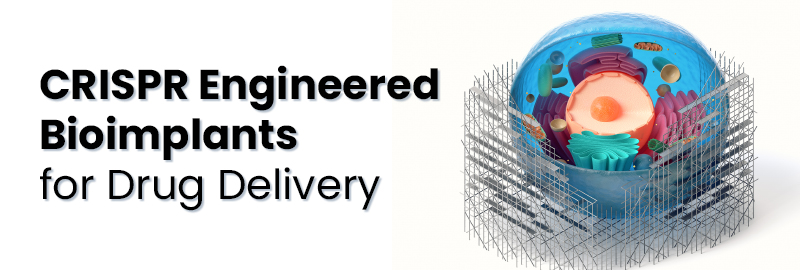CRISPR Engineered Bioimplants
Inflammation is a natural and necessary biological process that helps with wound healing as well as combating infection. However, the adage “too much of a good thing” is as relevant in a biological system as in our day-to-day lives. Rheumatoid arthritis (RA) is a chronic inflammatory disease state that primarily affects the hands and feet, leading to painful swelling, bone remodeling, and permanent disability to the individuals who are affected. Traditional therapy for RA consists of biological agents and a class of medication called disease-modifying antirheumatic drugs (DMARDs). While each class of drugs has shown efficacy in treating RA, they are not without severe side effects that include nausea, vomiting, never damage, and, although not that common, cancer.
The ability to tune a therapy in response to the fluctuations of inflammatory molecules produced by the immune cells has still not been realized; however, CRISPR is about to change all that. Researchers have not only embarked on such a quest but have successfully engineered cells genetically in order to provide site-specific anti-inflammatory protection in a K/BxN mice model that displays an inflammatory arthritic phenotype. Using induced pluripotent stem cells (iPSCs) and CRISPR as the gene-editing tool, the cells were engineered to produce IL-1Ra in response to the proinflammatory cytokine IL-1. The CRISPR-edited cells were engineered into a cartilaginous matrix that showed a rapid response to external stimuli in vitro and in vivo. The 3D woven cartilaginous scaffolds were subcutaneously implanted into the K/BxN mice to test their efficacy and showed autoregulatory delivery of IL-Ra in response to varying concentrations of IL-1 in vivo.
Upon the study’s conclusion, the researchers not only constructed a synthetic gene circuit to produce a naturally occurring anti-inflammatory biological molecule but also showed that their engineered system mitigated inflammation, pain, and degenerative bone remodeling and was superior to conventional DMARD therapy. This study is the first to show the therapeutic utility of the CRISPR gene-editing technology that can successfully sense and adjust treatment based on the inflammatory flare-ups that people with RA suffer from, thus halting the disease and dramatically improving the quality of life.
Visit us at Axxiem.com
